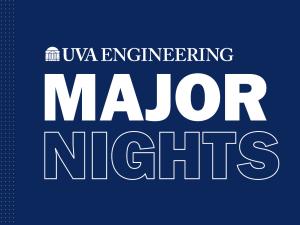Online Class Schedule - General Information
VEO Degree Students
Visit SIS or Lou’s List to search for classes. Students are strongly encouraged to discuss course plans with their advisor before enrolling in any course. Prior approval from your advisor is necessary to ensure that your planned courses will count towards your degree. Once approved, log into SIS and self-enroll.
Non-Degree and Visiting Students
Complete the non-degree account request (new students only; this form should be completed only once) and obtain instructor permission to enable course enrollment. When completing the form, make sure to select 'School of Engineering and Applied Science' for the school and 'Virginia Engineering Online' for the program. Our office will then personally assist you with the process. There is no application fee to take class as a non-degree or visiting student.
Class Search Options
Unofficial UVA class search: Visit Lou's List. Make sure the correct term is shown at the top left. Scroll down to the Engineering and Applied Sciences Departments and click to open the program options. Select a program (CHE, CE, ECE, MSE, MAE, or SYS) and review the courses that show. Generally, those listed with a 600 number section are those that will be available online.
Official UVA class search: Visit the Student Information System (SIS). Select ‘Search Classes by Semester’. Make sure the correct term is shown at the top left. Enter the subject in the ‘Subject’ field (CHE, CE, ECE, MSE, MAE, or SYS). Click the navy ‘Search’ button and review the courses that show. Generally, those listed with a 600 number section are those that will be available online.
Partnership schools class search: Visit Cardinal Education to learn more about the classes available through our university consortium partnership program. All UVA students interested in Cardinal Education classes should contact our VEO staff for support.
Featured Events
View All Events-
-
Time: 11:00 AM - 2:00 PMLocation: Newcomb Hall Ballroom
-
Time: 5:00 PM - 7:00 PMLocation: The Colonnade Club
